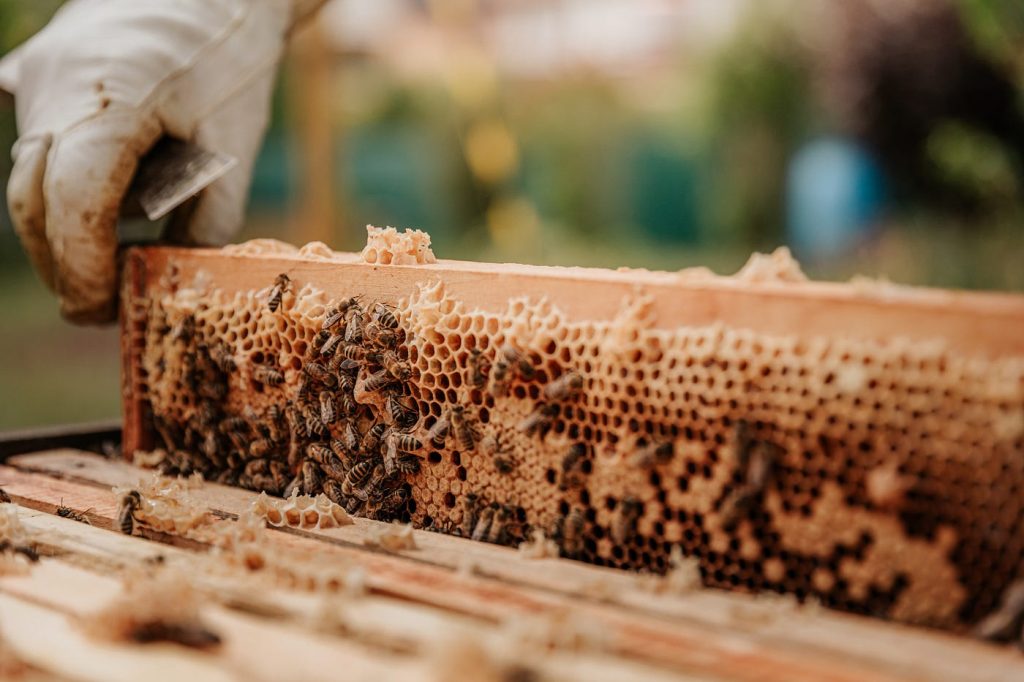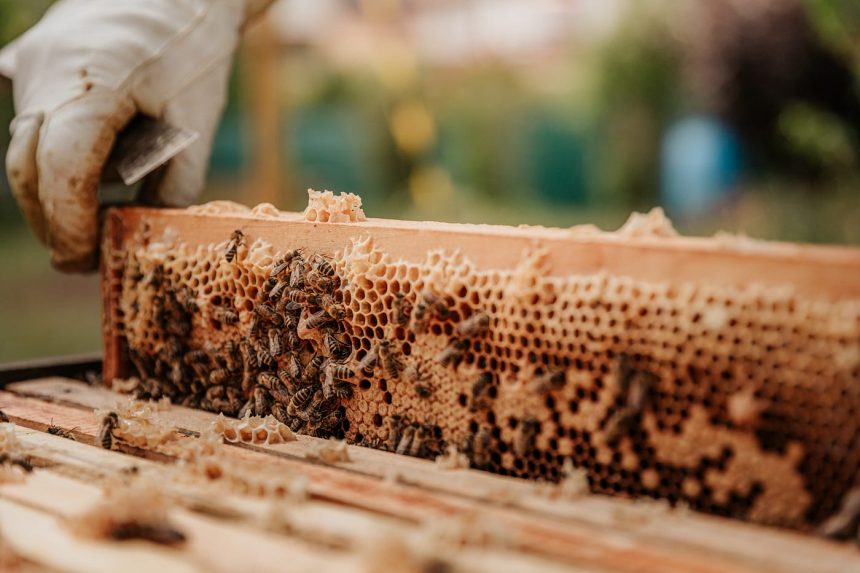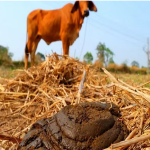
The application of modern technology has revolutionized beekeeping, unlocking vast potential to significantly impact a nation’s economy and ensure food security. Bees play a critical role in pollination, directly influencing crop yields and biodiversity, making bee farming (or apiculture) an essential component of sustainable agriculture.
In support of this idea, Yusuf Adeyemo, an expert in apiculture and President of the Youths for Apiculture Initiative (YFAI), recently emphasized the potential of bee farming to bolster food security. According to Adeyemo, local farmers who incorporate beehives could experience a substantial 30% increase in yields by attracting these crucial pollinators to their crops.
“Beehives can make a substantial contribution to food security,” he emphasized. “Bees serve as major agents of pollination, and in developed nations, beehives are extensively utilized for this purpose on farms. Most food crops rely on pollination for higher yields, and bees are globally recognized as the most effective pollinators.”
“Moreover,” Adeyemo added, “bees offer economic advantages. Placing beehives around farms can not only boost crop yield but also improve quality at harvest.”
Modern beekeepers are increasingly employing hive monitoring systems equipped with sensors to track parameters such as temperature, humidity, and hive weight. These systems provide real-time data, enabling remote monitoring of colony health and productivity. Early detection of irregularities allows beekeepers to intervene promptly, preventing colony losses and maximizing honey production.
One cutting-edge innovation transforming beekeeping is the modular hive. Unlike traditional hives, modular hives comprise interchangeable components that can be easily assembled, disassembled, and reconfigured to suit specific requirements. This innovative approach offers flexibility, scalability, and sustainability for beekeepers worldwide, enhancing operational efficiency and promoting bee health and welfare. Embracing modular hive systems allows beekeepers to optimize hive management, improve bee health, and contribute to the long-term viability of pollinator populations and agricultural ecosystems.
Key Features and Benefits of Modular Hive Design:
Customization and Adaptability: Modular hives enable beekeepers to customize hive configurations based on colony size, environmental factors, and management preferences. Interchangeable frames, supers, and hive bodies allow for adjustments to accommodate expanding colonies or optimize honey production, ensuring efficient management and productivity throughout the season.
Ease of Assembly and Maintenance: Unlike traditional hives that require specialized tools, modular hives are designed for user-friendliness. Components can be swiftly assembled and disassembled using simple locking mechanisms, facilitating hive inspection, maintenance, and transportation. This streamlined design minimizes labor and time, making beekeeping accessible to a wider audience.
Improved Ventilation and Insulation: Modular hives often incorporate innovative features for creating optimal hive environments. Ventilated bodies and screened bottom boards promote airflow, reducing moisture buildup and preventing diseases. Additionally, insulated components regulate internal temperatures, ensuring colony comfort and resilience in fluctuating weather conditions.
Space Optimization and Storage Efficiency: Modular hives maximize space utilization in apiaries. Stackable components minimize footprint requirements, allowing for multiple colonies in limited space. Collapsible or stackable components facilitate compact storage during off-season periods or transportation, optimizing space and organization.
Scalability and Expansion: Modular systems are scalable, enabling beekeepers to expand operations seamlessly as their endeavors grow. Whether adding new colonies or integrating equipment like queen excluders, modular designs accommodate growth without significant infrastructure changes, fostering business expansion and innovation.
Sustainability and Environmental Responsibility: Modular hive design often incorporates sustainable materials and manufacturing processes, aligning with beekeepers’ commitment to environmental stewardship. Eco-friendly materials like recycled plastics or sustainably sourced wood minimize environmental impact and promote resource conservation. Additionally, modular systems support sustainable practices by facilitating hive reuse, repair, and repurposing, thereby reducing waste generation.
In conclusion, modern hive design represents a paradigm shift in beekeeping technology, offering a harmonious blend of functionality, adaptability, and sustainability. It holds significant potential to revolutionize beekeeping practices, promote sustainable agriculture, and contribute to economic development and food security worldwide.





